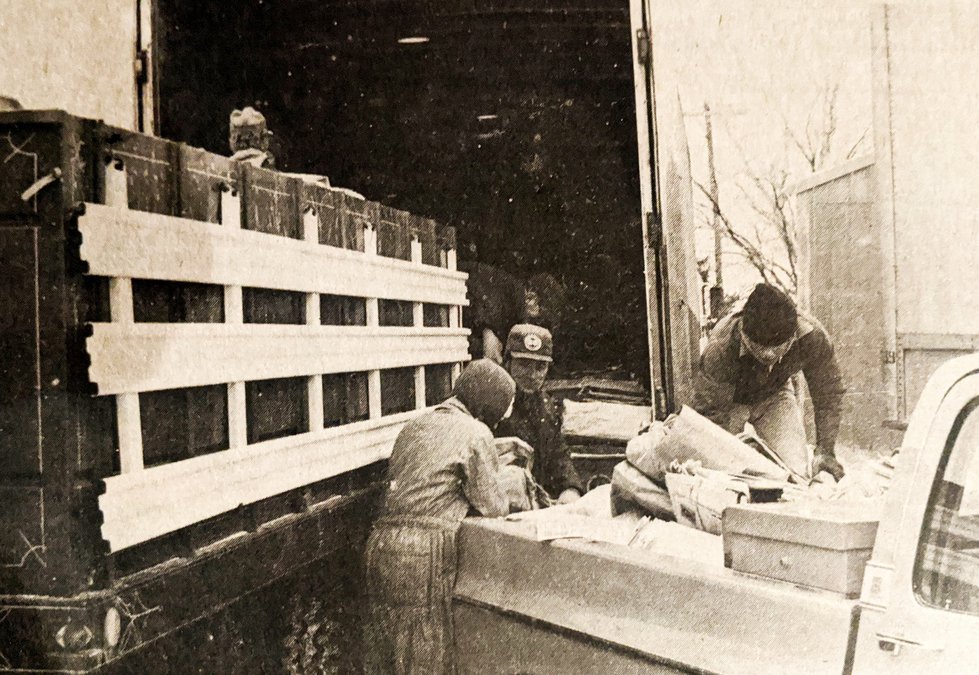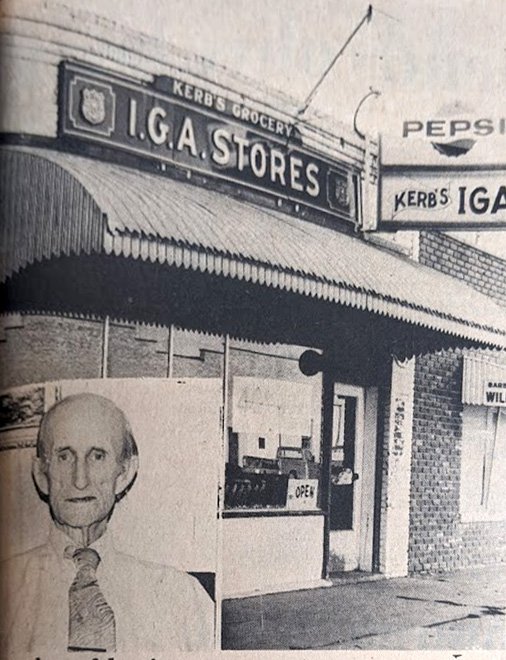Each week we’ll take a step back into the history of Great Bend through the eyes of reporters past. We’ll reacquaint you with what went into creating the Great Bend of today, and do our best to update you on what “the rest of the story” turned out to be.
This week in 1980, the pages of The Great Bend Tribune reported on President Jimmy Carter’s announcement that the U.S. would boycott the Olympic Games in Moscow in the summer in retaliation for Russian military intervention in Afghanistan. It wasn’t the only thing the White House was angry with Russia about. In November, 1979, 66 Americans were taken hostage by Iranians inside the U.S. Embassy in Tehran, and Russia had vetoed an attempt by the U.S. to sponsor economic sanctions against Iran by members of the United Nations.
The boycott of the Olympics was ultimately successful, with many other nations joining the U.S. That summer, an Olympic alternative, “The Liberty Bell Classic” was held in Philadelphia three days before the Olympic track and field events occurred in Moscow.


Paper drive for improvements
In the 1980’s, it paid to recycle paper, and it provided schools and youth organizations to raise money for big projects or group trips. People in the community were encouraged to save their daily newspapers and drop them off at a set location, or students would volunteer to come and get them on a regular basis. The organization arranged for a container and students would volunteer time to receive and stack the papers on weekends or after school, until the container was filled and then transported to the recycler where it would be weighed and the paper purchased. Sponsors provided countless volunteer hours to organize shifts and take care of the logistics of transport, often with little recognition for their efforts.
This week’s Tribune included a brief that Barton County 4-H’ers were raising money for 4-H grounds improvements. Two semi-trailer trucks were set to arrive at the Barton County 4-H building located between Great Bend and Hoisington on US-281 that weekend, where the 4-H’ers would be on hand to load all they’d collected over the past three months. During the 60’s, 70’s and 80’s, a lot of the paper recycled was ground and used for blown insulation or to create recycled paper. Today, some organizations are looking to recycling drives for fundraising, but the old fashioned paper drive has become a thing of the past. Locally, Kans for Kids Fighting Cancer collects aluminum cans throughout the year in order to fund its support for families facing a cancer diagnosis, and Sunflower Diversified Services offers recycling drop-off stations in Great Bend.


Closing the last IGA in Great Bend
On Jan. 22, 1980, Ranney Kerbs retired, closing the door of Kerb’s IGA store located on the corner of 6th and Main Street for the last time.
“Kerbs as been in the same location on South Main Street for 37 years,” according to the report. “The store, classed by Kerbs as a “little bit above a superette,” had been somewhat of a novelty to great Bend by continuing to sell meat in an open display meat counter.”
It was a neighborhood store, and Kerbs extended credit to his customers, even though he lost money doing so. He opened his first IGA in Claflin with a mere $750 investment. No push carts, and the grocer put up all the orders when provided with a list.
“It was a lot of work,” Kerbs recalled. “It’s a lot easier now.”
“Besides putting up orders, the grocer was responsible for separating the milk and cream, candling eggs, and dressing chickens. Everything was sold by bulk then (not individual packages), so he was also responsible for dipping up ice cream, counting crackers and wrapping pickles.”
This is sounding pretty familiar. Almost 80 years later, large grocers are beginning to offer curb-side grocery pick-up. People provide their list via the internet, and schedule a time to pick up their packages at the store, and that’s happening here in Great Bend now. In larger cities, grocery stores are even offering grocery delivery. Perhaps soon, bulk ordering will be offered as a means of reducing packaging as the public seeks ways to be more environmentally responsible.
Sadly, the local grocery store is becoming increasingly threatened, even endangered, as a retail species in today’s economy. Kerb’s IGA may have been the last to close its doors in Great Bend, but one of the many neighborhood shops to shut down as the trend towards driving a distance to access more selection became mainstream.


50 years of Pluto
Also on Jan. 22, the Tribune paid tribute to Clyde Tombaugh, Burdett, the wheat farmer who found Pluto 50 years earlier. Then 24 years old, who had been stargazing since he was 12.
“When times get tough on the farm, he took a job at the Lowell Observatory in Flagstaff, Ariz. It was there, early in 1930, that Tombaugh made photographic plates of the sky that confirmed Pluto’s existence,” the report stated.
The history of the search went back to 1905 when Dr. Percival Lowell noticed slight irregularities in the predicted orbit of Neptune, and concluded it had to be caused by the gravitational pull of an undiscovered planet. Through his efforts, the Flagstaff observatory was created, and he spent the next 10 years searching. He died in 1916. Then in 1929, the search was taken up again. But the work was tedious, so the head researchers hired Tombaugh, and amateur astronomer, to make and later read the plates.
“It didn’t matter what they wanted me to do. Just anything to get off the farm,” Tombaugh said. “We got hailed out that year and were absolutely broke. When I got on that train to go to Flagstaff, I didn’t have enough money for the return fare.”
He made the discovery in February, 1930, and on March 31, 1930, the 75th anniversary of Lowell’s birth, it was announced to the world that Tombaugh had found the mysterious “Planet X.”
Tombaugh went on to become a professor of astronomy at New Mexico State University. Today, visitors to Burdett can swing by the city park that includes a miniature golf course decorated to a solar system themes, complete with a memorial to Tombaugh. Pluto was later re-classified as a dwarf planet in 2005 when additional objects were located in the same orbit outside Neptune’s orbit.





